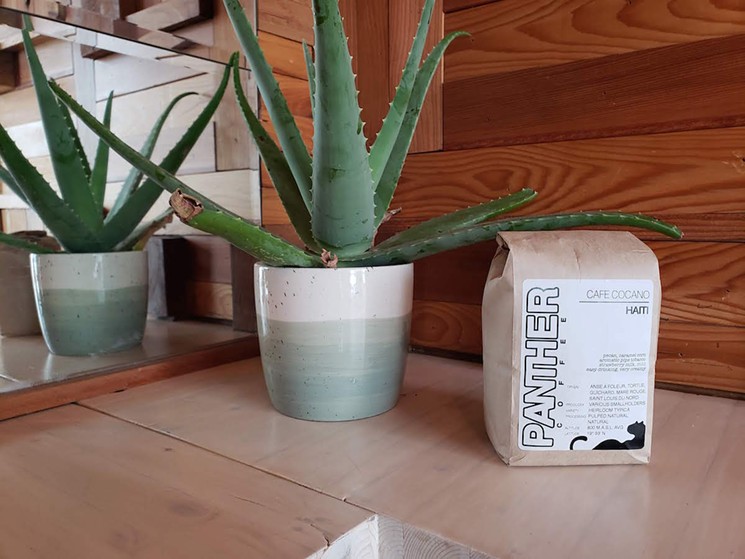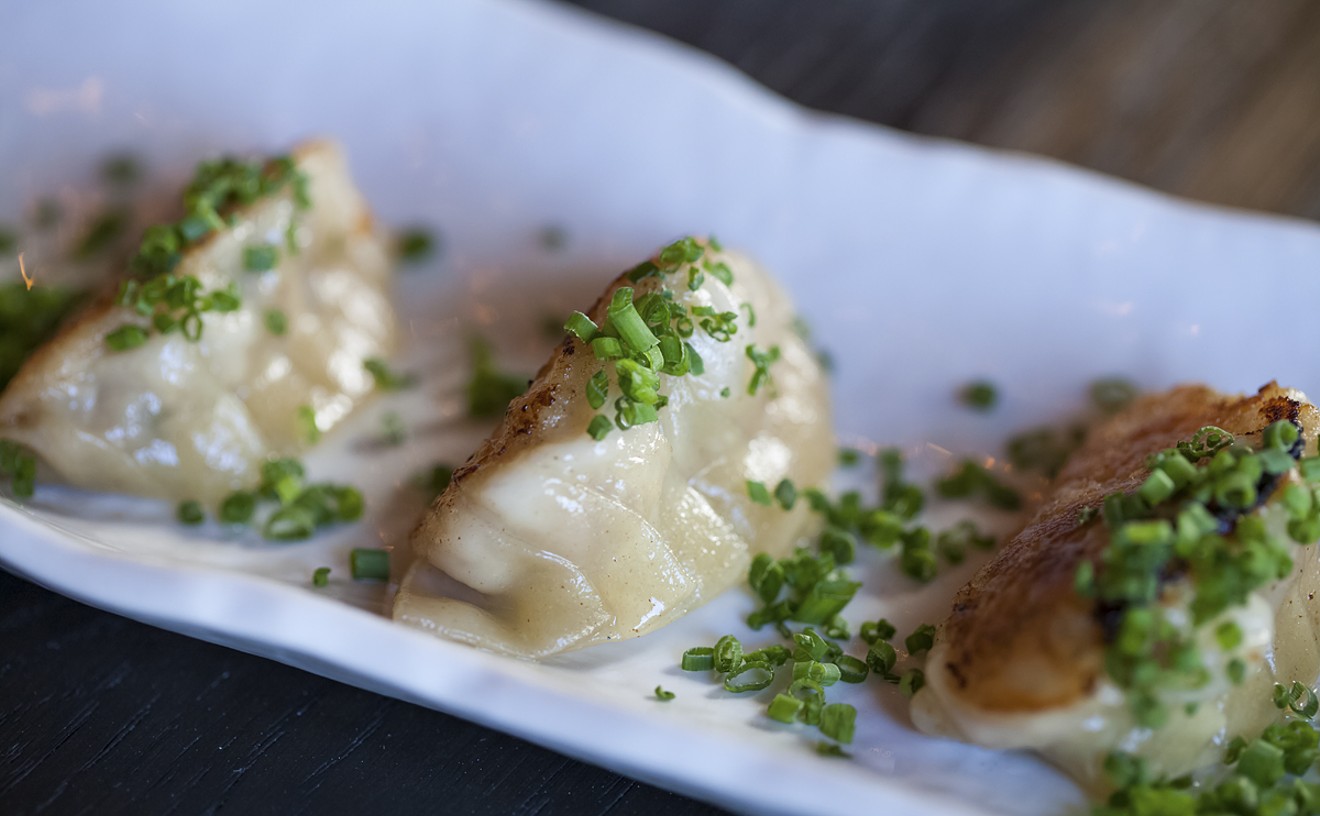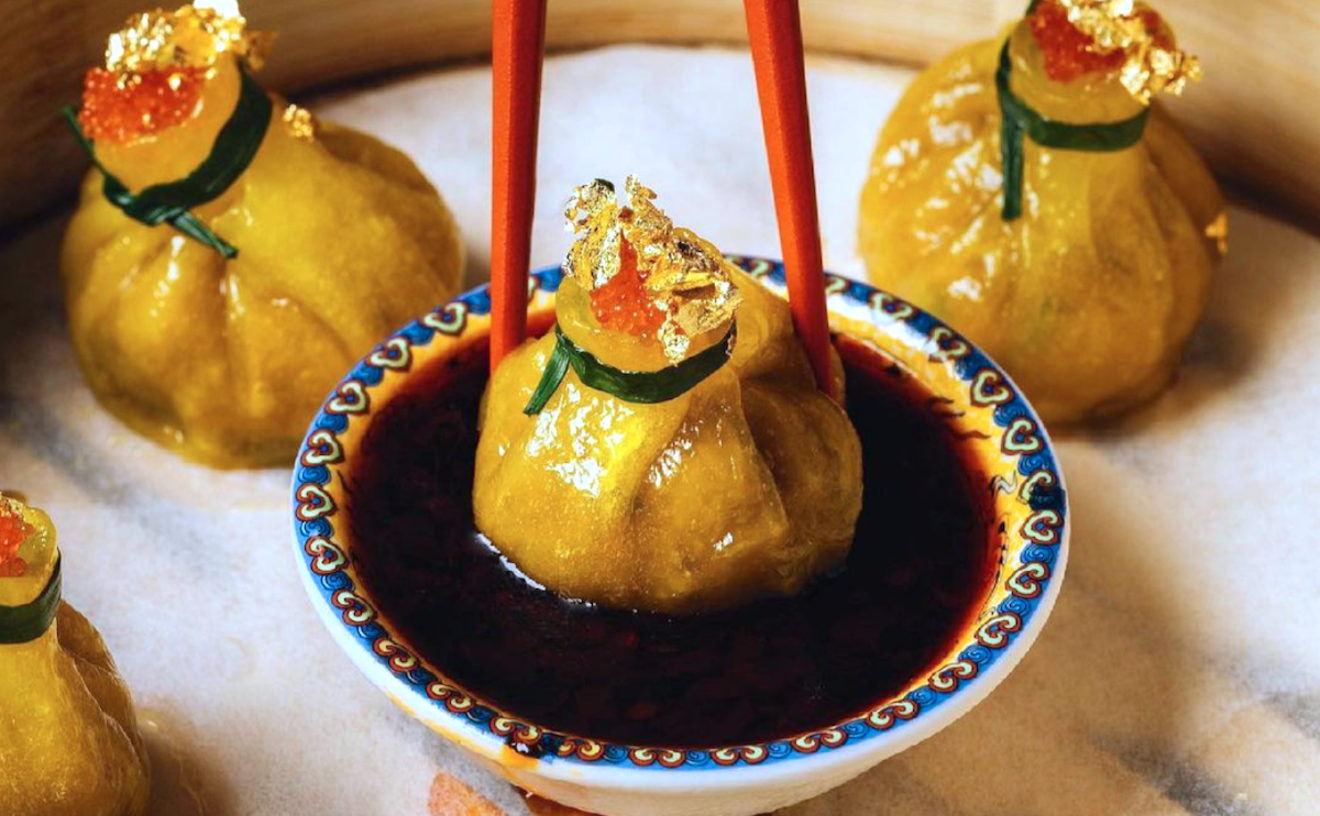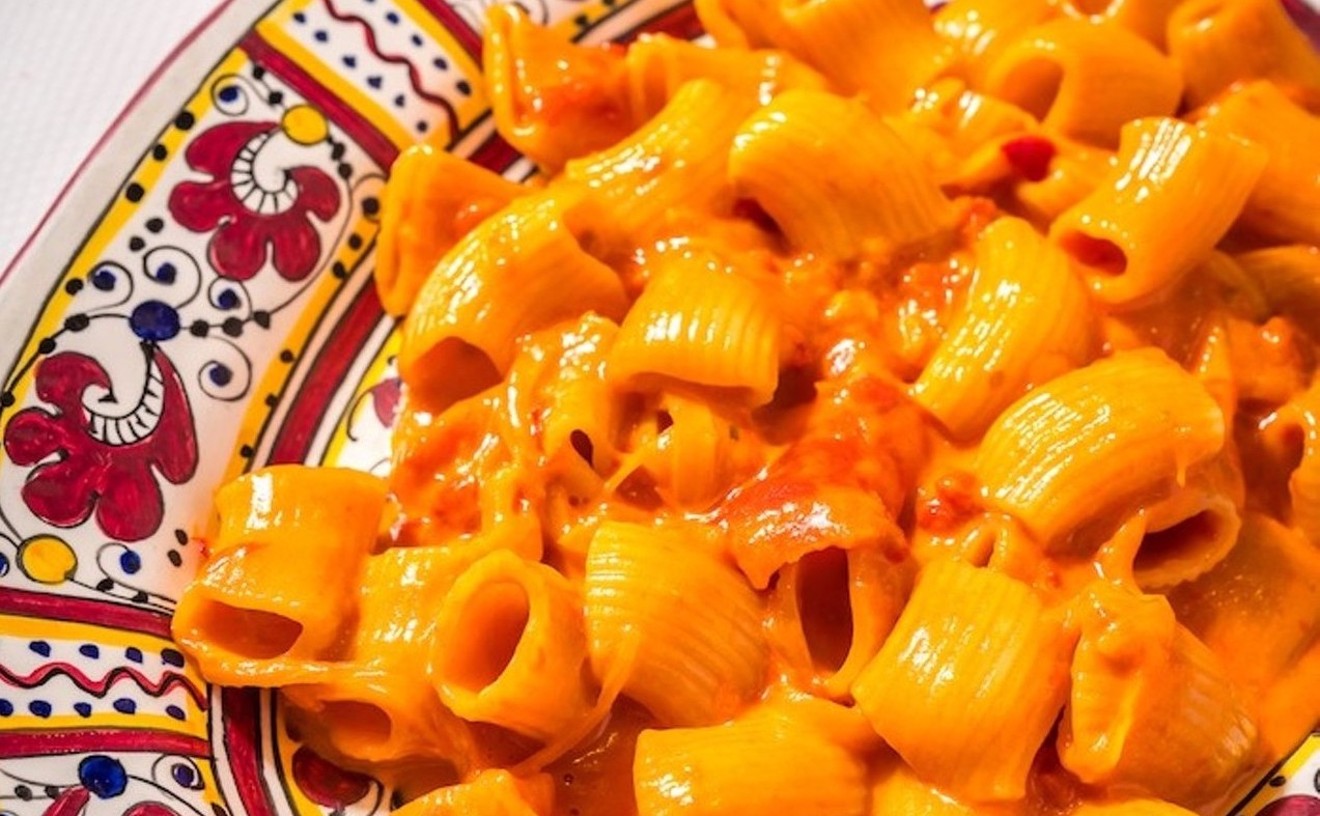"We scraped by. We were barely living," the 57-year-old says during a crackly phone interview from the island.
As the years passed, conditions worsened, forcing many farmers to turn their land over to other crops or leave them behind for better prospects in Haiti's capital, Port-au-Prince.
The challenges for Haitian coffee continued to balloon. The problems peaked in 1991, when the Haitian army removed President Jean-Bertrand Aristide from power. Recent years have been equally challenging.
"We're seeing climate change right now," St. Hubert says. "It's been so hot and so hard on the coffee trees that many of them don't survive."
In 2011, Anthony Vinciguerra, then a professor of human rights and international peace studies at St. Thomas University in Miami Gardens, approached Joel Pollock, cofounder of the popular local café and roaster Panther Coffee, to try Haitian coffee. But the fundamental challenges to growing, producing, and exporting coffee from the Caribbean nation flashed like a giant red warning sign.
"I'm a roaster," Pollock says. "I want to buy the coffee, roast it, and share it, and part of that is having to bear the burden of achieving a certain quality."
Overcoming the seemingly insurmountable political, economic, agricultural, and logistical challenges of improving Haitian coffee and reliably exporting it seemed impossible. Pollock was also wary of becoming a kind of short-lived, NGO-like knight in shining armor who so often parachute into Haiti with grand plans but the leave after only a short period with little impact. But the coffee's potential piqued Pollock's interest.
"The Haitian coffee was very unique. It had savory umami notes, really good spice, and clove notes. I've been doing this for 30 years, and I've never seen a coffee quite like this," Pollock says. "We wanted to help, but if you take two steps forward and four steps back, you're not helping. You're creating an illusion and fantasy and making people feel a certain way about something they don’t understand."
Fast-forward nearly a decade to 2019. Earlier this year, Pollock and Vinciguerra, in partnership with Cafe Cocano, a fair-trade co-op of Haitian farmers headed by St. Hubert, sent Miami its largest shipment of coffee: four bags each weighing 60 kilograms, which Pollock's baristas ground and pulled into espressos. When it's brewed in a French press, the result — with pecan, caramel, and tobacco notes — is approachable for novices. Slight whiffs of strawberry give more experienced palates the East African fruitiness they so dearly love. The coffee quickly sold out at Panther, but more is expected to arrive in the coming months.
For the moment, it appears the farmers, with Pollock and Vinciguerra's help, are on their way to creating a sustainable business they control.
"We finally have the kind of support we need, and we really think that through this work, we can tackle the biggest challenge, which is to help improve the lives of the people of Haiti so the young people can find work and stop turning to violence," St. Hubert says.
Coffee was first imported to Haiti by colonists from Martinique in 1715, according to a Pan-American Union report from the early 20th Century. The high altitude and rocky soil combined with the climate made conditions ideal for coffee to thrive, and because of the island's status as a massive French slave colony, it quickly became a valuable cash crop. The Haitian revolution, the only successful slave revolt in the Western Hemisphere during that era, quickly led to the destruction of nearly all coffee trees in the country.
In recent decades, the U.S.-led embargoes against the dictatorships of François and Jean-Claude Duvalier further hampered the industry. The ensuing years of deforestation and constant mudslides running down Haiti's mountains, along with the massive earthquake of 2010 and the ensuing political upheaval, almost ensured the nation's coffee industry would remain in tatters.
What was left was a situation that persists today, in which coffee brokers sell beans to some of the world's largest purveyors, who wield tremendous bargaining power over small farmers, who are forced to sell their coffee for obscenely low rates, sometimes less than the cost it takes to produce a crop.
Vinciguerra in 2004 launched an effort within the Archdiocese of Miami that today is known as Cafe Cocano. The first time Pollock visited the co-op, which includes about 300 small farmers and a total of 900 people, he saw what he calls "classic problems."
"We found a lot of debris in the coffee and a lot of mold and mildew in the cup," he says. "We found what were the results of storage and processing problems."
On their annual visits to Haiti, Vinciguerra, Pollock, and their teams would spend days at small farms to get a sense of their operations and where they could be improved. Pollock conducted training sessions with regional quality managers at a Catholic church, where farmers would convene to talk, taste coffee, and sleep under mosquito nets."I've been doing this for 30 years, and I've never see a coffee quite like this," Pollock says.
tweet this
Panther Coffee's presence was a welcome addition. In the few years prior, Vinciguerra, along with St. Thomas University and the Archdiocese of Miami, had been bringing back small lots of coffee, shipping them to Italy to be roasted, and then shipping them back to Miami, where they'd be sold most to the St. Thomas community.
"At the very beginning, they were getting 65 cents a pound. Now the farmers are getting through the co-op $4.50 a pound, and Joel is paying a lot more: Last year, it was $7.50 per pound," Vinciguerra says.
However, that increase came only with improvements in production. Some of them were simple changes, such as covering the containers in which coffee is shipped across the country before export.
"One time, the coffee was covered with stones," Pollock recalls. "There was a tropical storm and it got wet in transit, and the only way to save the beans was to stop, open the bags, dry the beans on the pavement, then scoop them up and put them back. The beans should be packaged better."
Since then, they've built drying racks for some of the farmers so they can get the beans, once the fruit is removed, off the ground and more fully dried to prevent over fermentation. They installed a mechanized de-pulper to help process the beans faster and ensure against other issues that gave the coffee the initial moldy taste that Pollock first tried. Some of the work has been as simple as basic training.
"Technical, little things, like only picking the beans when they start to turn purple, have made a huge difference," Vinciguerra says. In 2018, all told, the co-op harvested about 600 pounds of exportable quality coffee.
And in the high-priced, high-demand, and high-expectation world of specialty coffee, those little things can make all the difference and would be critical to helping the farmers get more than the pittances the coffee behemoths were accustomed to paying.
"One of the critiques of fair trade is that it incentivizes poor-quality coffee, and there are people paying a lot of money to only feel good," Vinciguerra says. "If farmers can get a lot of money for badly grown, badly picked coffee, that's what they’re going to do, but it's not sustainable, and fair-trade prices are not so good, so they’re developing a product that's not going to sell to anyone and they're not making a big enough margin."
Pollock echoes that sentiment while warning that poorly produced and grown coffee can discredit an entire producing region, which can cause a domino effect on the industry for decades to come.
But because of incremental improvements in both technology and farming practices, harvests are on the rise, and Pollock expects a significant amount of coffee to land on South Florida's shores in the coming months.
For the farmers back in Haiti, the challenge now becomes fulfilling that demand, which means growing new trees, which take three years to produce fruit, and weathering the ins and outs of Haiti's political, economic, and social classes as well as the now-too-often natural disasters.
"We've taken great strides in several areas," Cafe Cocano president St. Hubert says. "We didn't have the right techniques, the right equipment, or the right clients. We have that now, and it will all help us reach our goal of improving not only our coffee but also our people's lives."
Panther Coffee. Various locations.














